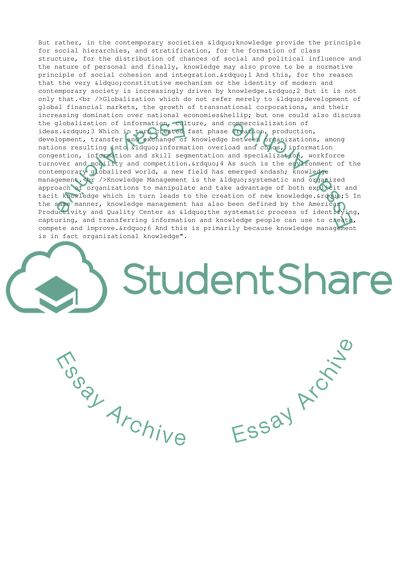Cite this document
(Knowledge Management Essay Example | Topics and Well Written Essays - 2750 words, n.d.)
Knowledge Management Essay Example | Topics and Well Written Essays - 2750 words. https://studentshare.org/management/1704430-enterprise-knowledge-management
Knowledge Management Essay Example | Topics and Well Written Essays - 2750 words. https://studentshare.org/management/1704430-enterprise-knowledge-management
(Knowledge Management Essay Example | Topics and Well Written Essays - 2750 Words)
Knowledge Management Essay Example | Topics and Well Written Essays - 2750 Words. https://studentshare.org/management/1704430-enterprise-knowledge-management.
Knowledge Management Essay Example | Topics and Well Written Essays - 2750 Words. https://studentshare.org/management/1704430-enterprise-knowledge-management.
“Knowledge Management Essay Example | Topics and Well Written Essays - 2750 Words”. https://studentshare.org/management/1704430-enterprise-knowledge-management.


